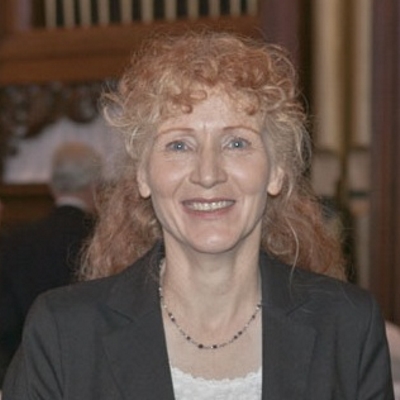The Australian MS Longitudinal Study (AMSLS) collects real life data from people living with MS.
It is a survey-based research study that has been running since 2002 and now has about 2500 people completing research surveys each year.
The data collected is used by policy makers and MS medical and support services to create positive change and improve the lives of people with MS.
But for the data to have the most impact, the AMSLS needs as many participants as possible.
The AMSLS is one of MS Australia’s collaborative research platforms; a partnership between MS Australia and the Menzies Institute for Medical Research, University of Tasmania.
All projects are approved by the AMSLS Steering Committee, which includes people with MS, representatives from the MS state organisations, MS nurses, neurologists and MS Australia.






Regardless of who you are, lifestyle choices, such as diet and exercise, can have an impact on your overall wellbeing. For those with MS, finding ways to maintain healthy choices when dealing with fatigue or other physical symptoms at the same time can be challenging.
We have several current projects focused on lifestyle factors people can control themselves, including looking into the effects of the “SNAP” factors (smoking, nutrition, alcohol and physical activity) on symptoms severity and quality of life, and what factors influence how much exercise people do and what types of exercise they are choosing to do.
Frequently, if you speak to someone with MS they will tell you that MS is not the only medical condition they are dealing with. With MS itself affecting everyone differently, further incorporating a range of other medical conditions in an effective treatment plan becomes incredibly challenging for health care providers.
We are looking into the presence of other medical conditions alongside MS, whether they occur before or after MS, which of these have the biggest impact on quality of life, and how they impact common MS symptoms. This information will be beneficial to guide the management of people with MS.
With the majority of people being diagnosed with MS at a time where they are just starting to gather momentum in their chosen career, the need to support people with MS to remain happy and productive in the workforce has been a long-term focus for the AMSLS (see key findings).
With longitudinal data available, we can examine people’s long-term work experiences, including the interplay between disclosure of MS at work, support at work, and the intention to quit, and what more can be done to assist people in reaping the best possible personal and social benefits from active participation in the workforce.
Over the last few years there has been an increasing number of people wishing to take more control over their own health and wellbeing. The InforMS system is being developed to provide people with the tools to help manage not just MS, but their health in general.
Sleep is essential to our functioning, but MS can adversely impact sleep, which then has flow on effects for other areas of life. We are quantifying how many people have issues with sleep, the factors that might influence sleep, and any resultant impacts on quality of life, daily functioning and other symptoms.
With MS nurses possessing a level of understanding about MS and its management that is often unmatched by the wider health care community, their availability in many clinics around Australia is an underestimated resource.
In collaboration with MS Australia, we are looking into how many people have access to an MS nurse, and how those nurses influence the care of someone with MS. The data will inform service planning for MS nurses around Australia.
With twice as many people with MS affected by anxiety and depression than the general population, we are examining whether people with MS are appropriately treated for depression and whether anti-depressants potentially have a positive effect on the progression of the disease.
